Article 2: Declaration of State Principles
Section 1. The sovereign geopolitical entity called the Philippines is a federal republic. Sovereignty resides in the people and all government authority being exercised comes from them. The official name of this entity in the Filipino language is “Republika Federal ng Pilipinas.”
Section 2. The national territory consists of the islands which form the Philippine archipelago, the waters that border and connect those islands, and all other territories belonging to the Philippines by historic title, by discovery, or any other means recognized under international law.
Section 3. The Philippines never initiates war unless in self-defense, adopts the generally-accepted principles of international law as part of its basic laws, and adheres to a just, free, and friendly atmosphere with all nations.
Section 4. Civilian authority is supreme over the military for all time. The Armed Forces shall secure the sovereignty of the State and the integrity of the national territory.
Section 5. The prime duty of the Government is to serve and protect the people. The Government may call upon volunteer citizens to defend the State to render personal, military or civil service. A standing army is maintained, but shall never be used against the people themselves.
Section 6. The maintenance of peace and order, the protection of life, liberty, and property are essential duties of the State.
Section 7. The separation of Church and State shall not be broken. The Church shall have no right, in full accordance of the law, to conduct or intervene in political affairs of the People and the State.
Section 8. The State shall pursue an independent foreign policy. In its relations with other states the paramount consideration shall be national sovereignty, territorial integrity, national interest, and the right to self-determination.
Section 9. No weapons of mass destruction shall be installed in Philippine territory.
Section 10. The State shall ensure the autonomy of local governments or clusters thereof, towards the ultimate establishment of a federal system of government.
Section 11. The State shall guarantee equal access to opportunities for public service.
Section 12. Subject to reasonable conditions prescribed by law, the State adopts and implements a policy of full public disclosure of all its transactions except when the nation is engaged in war.


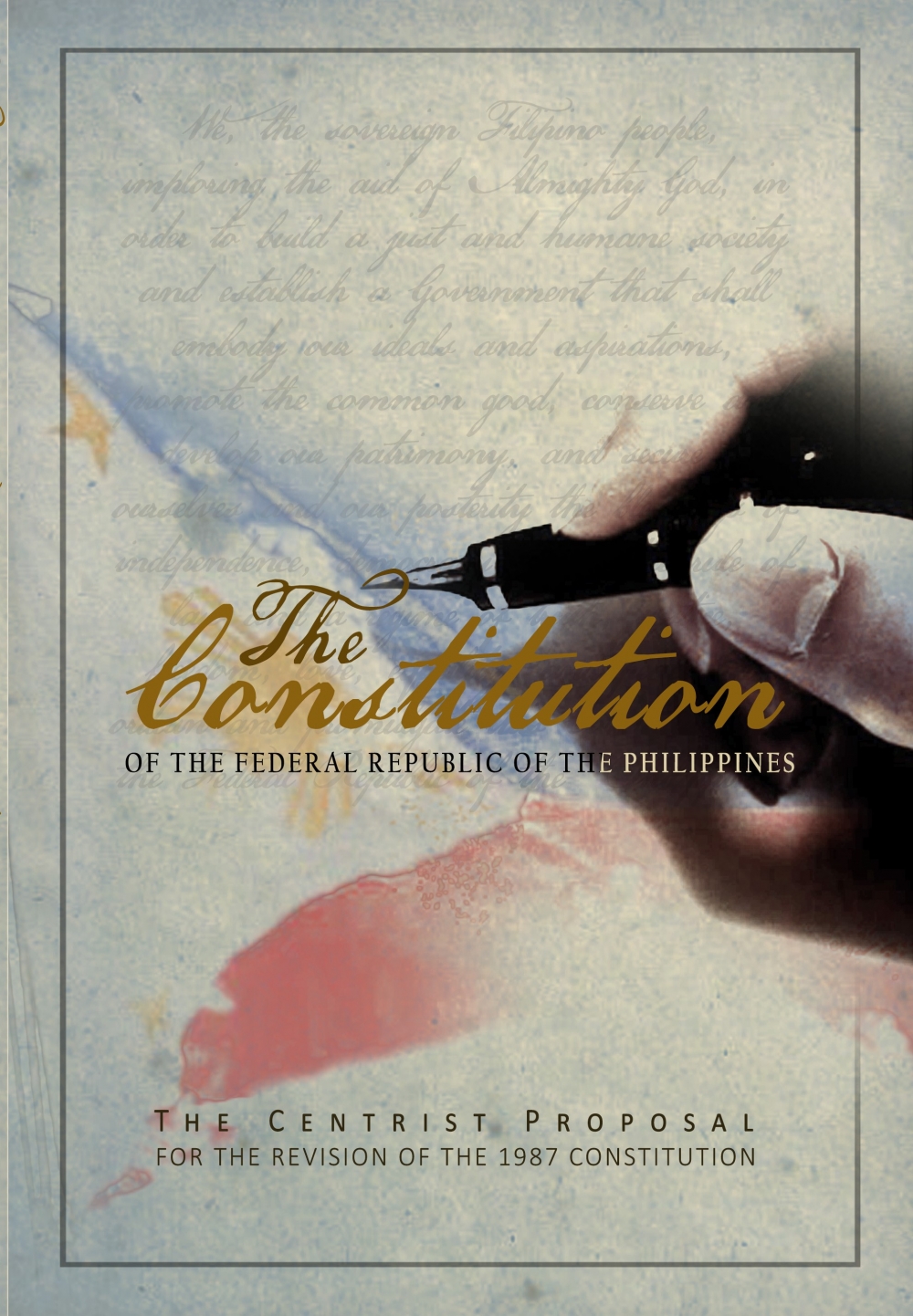

 I believe: This is a CoRRECT™ Video with a very positive message
I believe: This is a CoRRECT™ Video with a very positive message Walang Natira: Gloc-9's MTV Rap about the OFW Phenomenon
Walang Natira: Gloc-9's MTV Rap about the OFW Phenomenon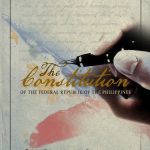



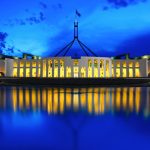




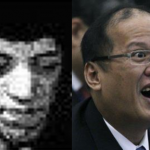
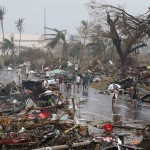

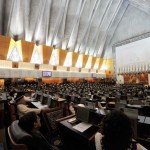
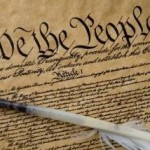
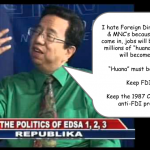


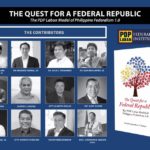



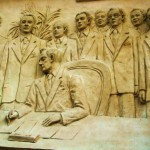
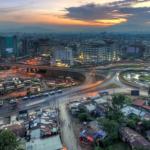


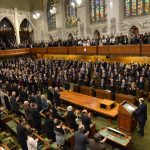

The Constitution itself is a statement of basic government principles. I propose that we remove this article altogether, and move its different sections into their relevant Articles. Sections that do not belong anywhere should be omitted. Please discuss whether you are in favor of or against this suggestion.
Nobody objected to my suggestion above, and so I have gone ahead and edited this Article myself. This Article was taken from Article II in the 1987 Constitution, and it’s one of the most problematic Articles in that Constitution. It allowed the government to encroach in too many rights, which should be reserved to the people. We can omit this whole Article, and we won’t lose much, but I decided to keep some Sections. Below I justify each edit I did. As a backgrounder on these, please read also http://ctapang.wordpress.com/2011/03/13/what-is-freedom/
Section 3. The original version of this section renounces war even in self-defense, and this new version at least allows us to defend ourselves.
Section 5. The original version allowed the government to force people to serve it for the common good (even though it was phrased with “government may call upon”, it could be legally interpreted as allowing for conscription). I also added provision for a standing army or armed forces that is never to be used against the people themselves.
Section 6. The original version had “promotion of the general welfare” as an essential duty of the state. This is too nebulous and could be legally interpreted as allowing the government to engage in activities it does not need to engage in.
Section 10. We have to remove this section altogether. “Social Justice” is a very broad term, open to all kinds of interpretation. There is an academic definition of “Social Justice” but it can’t be a legal term. Justice by itself is very well defined, and it is all in the Bill of Rights, but qualifying it by adding “Social” in front of it does not make it any more “just”. Our aim here is to reduce the areas in which the government can act with impunity. We therefore do not want the government to be responsible for “national development” in general. The best way for the government to promote “national development” is not to do anything about it, but rather focus on its prime/essential duties. By focusing on its prime responsibilities like keeping the peace and order, the government can contribute much more to national development.
Section 11. Same reasoning as in Section 6 and 10. See also http://ctapang.wordpress.com/2011/08/07/the-government-cannot-be-benevolent-and-shouldnt-even-try-to-be/
Section 12. The Bill of Rights already “guarantees full respect for human rights”, unless another meaning of “human rights” is meant here.
Section 13. We should allow each autonomous region to decide for itself what it does to protect the family. There are some Muslim regions, for example, who have a very different view of what laws related to family can be enacted. Some regions may have very strict laws regarding parenting and such, and some may not even mention anything about parenting. This then gives each citizen the right to decide for himself where his family would fare best. If he is a Muslim, he can decide to raise a family in a Muslim region. Otherwise, he can vote with his feet and move to a region more agreeable to his traditions and culture.
Section 14. The issue of equality between men and women should be decided at the autonomous regional level.
Section 15. Health issues should also be decided at the autonomous regional level. This is too important a matter to be handed to the national government.
Section 16. Ecological issues should also be decided at the autonomous regional level.
Section 17. The priority should instead be given to the prime duties of the national government: keeping of the peace and order, protection of private property and other rights defined in the Bill of Rights. I believe that education, science and technology will naturally develop if people are allowed to do it.
Section 18. Labor is also a market, and if we want free markets, labor is one area that the government has too much control of, and therefore badly needs reform. This section allows the government to enact laws that control the price of labor, for example. Minimum wage laws do nothing to improve the plight of the poor. All it does is limit the number of people who can get a job because businesses simply reduce the number of people they hire as the minimum wage increases.
Section 19. The State does not need to “provide incentives to needed investments”. Rather, it needs to free individuals and corporations to make investments. Allowing the government to provide incentives only promotes cronyism. See also http://ctapang.wordpress.com/2011/04/25/the-parable-of-the-good-father-and-national-five-year-plans/
Section 20. Agrarian reform has been tried in so many countries, and it has done nothing good. How many more decades do we need to conclude that it’s also not working for us? We should strengthen our property rights instead.
Section 21. Both Federalism, by allowing each region freedom to determine its destinay, and the Bill of Rights already “promotes the rights of indigenous peoples”. If indigenous peoples have rights equal to any other citizen, then no special mention is needed in the constitution for this. It’s not that the proposed constitution does not recognize these rights, it is precisely that it allows for equality before the law, regardless of one being indigenous or not.
Section 22. No “encouragement” is needed for non-governmental organization to do good in the country. Again, the best that the government can do in this regard is to protect life and liberty, and to keep peace and order.
Section 23. Same as in Sections 19 and 22.
Section 26. The most effective way to reduce graft and corruption in government is to reduce the power of government in all areas it’s not supposed to exert power. For example, the people should be free to import goods, and implementing this freedom means abolishing all import restriction laws and all departments and/or beureaus whose job it is to harass citizens buying products made in other countries. Let local industry compete with foreign imports. The common justification for controlling imports is to “protect” local industry. The effect has always been an uncompetitive local industry, at the expense of all citizens losing their freedom to buy from the outside. Imagine how much corruption we can reduce simply by abolishing backward government roles like “protecting” local industry.
I have edited this article as “Article 2: Declaration of State Principles.” I have agreed with C. C. Tapang’s observations above.